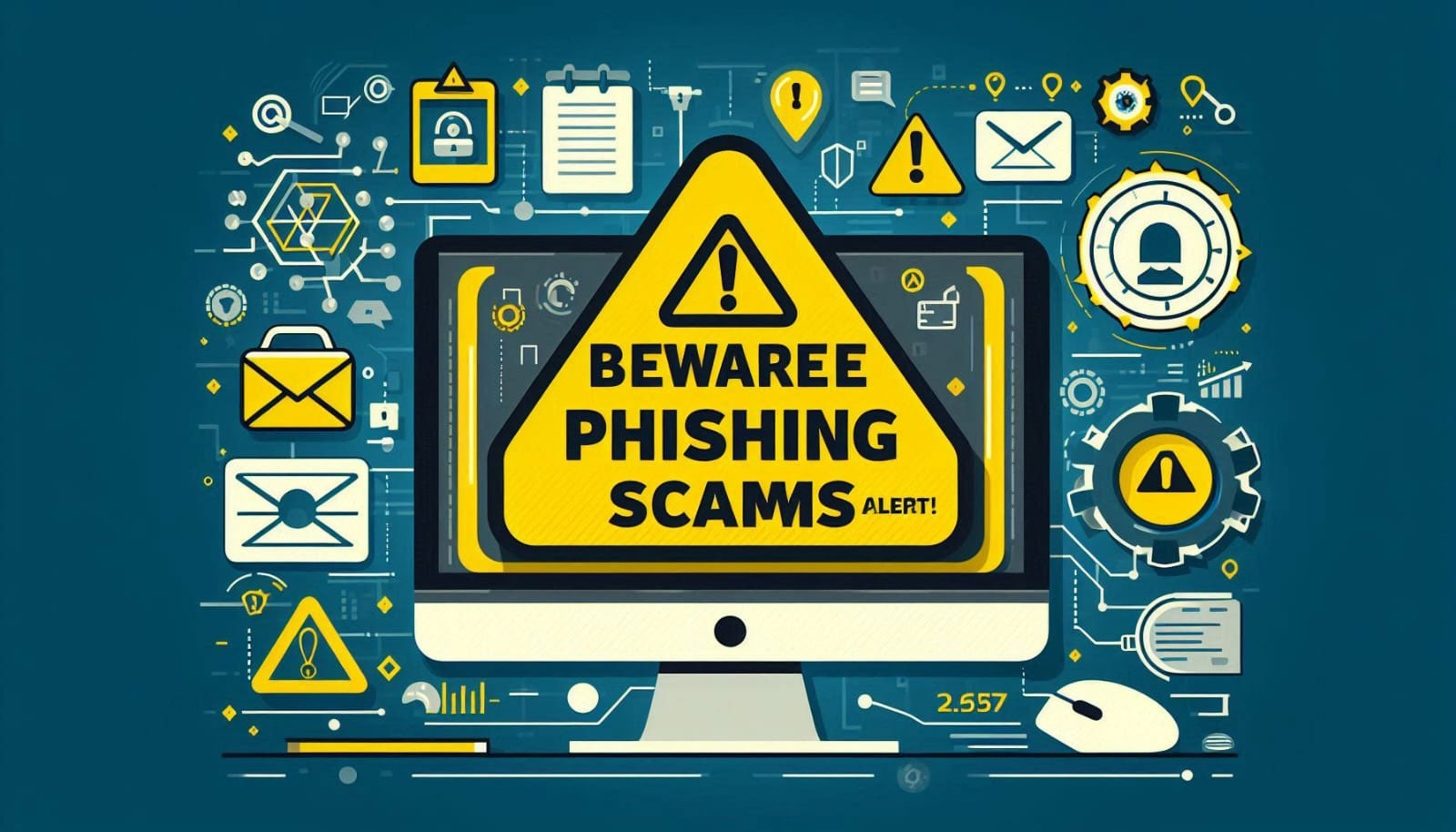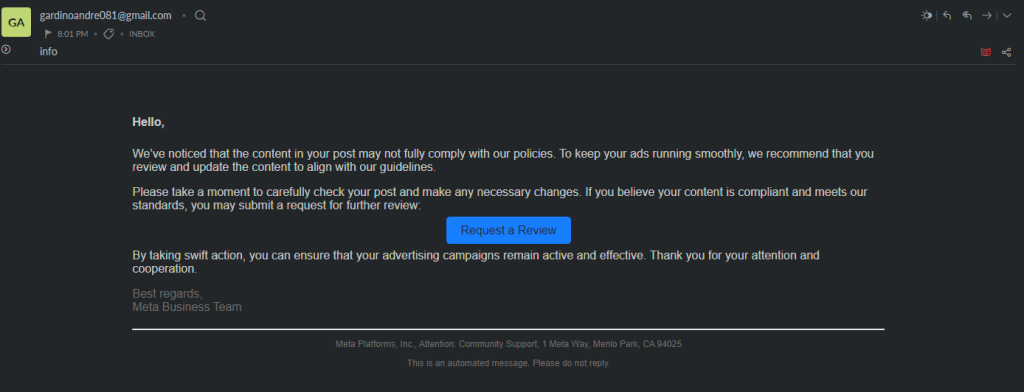
In today’s digital landscape, online advertising has become a vital tool for businesses to reach their target audience. Platforms like Facebook and Instagram offer unparalleled opportunities to promote products and services. However, with these opportunities come risks, including phishing scams that can jeopardize your marketing efforts. Recently, I received a suspicious email purporting to be from the Meta Business Team, and it serves as a stark reminder of the importance of vigilance when it comes to online communications.
The Phishing Attempt
The email I received was a classic phishing attempt, disguised as a legitimate notification from Meta. It warned me that my post might not comply with their advertising policies and encouraged me to review and update the content. The message was carefully crafted to create a sense of urgency and concern, urging me to take immediate action to keep my ads running smoothly. However, a closer inspection revealed some red flags that indicated the email was fraudulent.
- Sender’s Email Address: One of the first things I noticed was that the email came from a Gmail address rather than an official Meta domain. Legitimate communications from Meta would typically originate from their corporate email domains, such as @facebook.com or @meta.com.
- Generic Greeting: The email addressed me as “Dear User” rather than using my name or the name of my business. This is a common tactic used by scammers, as they often send bulk emails to numerous recipients without personalization.
- Lack of Specificity: The email did not specify which post it was referring to or provide any details about the supposed violations. Authentic communications usually include relevant information to help the recipient understand the issue.
- Request for Action: Phishing emails often encourage recipients to click on links or provide personal information. This email included a link to “Request a Review,” which could lead to a fraudulent site designed to harvest sensitive information.

Frequency of Phishing Attempts
Over the past few months, I have received more than 10-15 similar phishing emails, all claiming to be from the Meta Business Team. Each message follows a similar format, creating urgency and prompting immediate action. This alarming frequency underscores the need for awareness and vigilance in the face of such scams. It’s not just a one-off incident; phishing attempts are becoming increasingly common, and businesses must be prepared to recognize and respond to these threats.
Why Phishing Scams Are Dangerous
Phishing scams like this one can have serious consequences for businesses. Here are a few reasons why you should be cautious:
- Data Theft: Scammers may seek to steal sensitive information, such as login credentials, credit card details, or personal data. This can lead to identity theft and financial loss.
- Reputational Damage: Falling for a phishing scam can damage your brand’s reputation, especially if the scammer impersonates your business to defraud customers.
- Ad Account Compromise: If scammers gain access to your advertising accounts, they can misuse your funds, run fraudulent ads, or cause further disruptions to your marketing efforts.
How to Protect Yourself
To safeguard yourself and your business from phishing scams, consider the following best practices:
- Verify Sender’s Email: Always check the email address of the sender. If it looks suspicious or doesn’t match the official domain, do not engage with the email.
- Look for Red Flags: Be wary of generic greetings, spelling errors, or vague language. Legitimate companies typically communicate clearly and professionally.
- Avoid Clicking Links: Instead of clicking on links in suspicious emails, log in directly to your account through the official website. This way, you can check for any notifications or alerts.
- Educate Your Team: If you work with a team, ensure everyone is aware of phishing scams and knows how to identify them. Regular training can help reduce the risk of falling victim to such attacks.
- Report Suspicious Emails: If you encounter a phishing attempt, report it to your email provider and the legitimate organization being impersonated. This helps raise awareness and protect others.
- Use Two-Factor Authentication (2FA): Enable 2FA for your accounts whenever possible. This adds an extra layer of security, making it harder for scammers to gain access even if they obtain your password.
Conclusion
As online advertising continues to evolve, so do the tactics of scammers. The phishing attempts I have received serve as a crucial reminder to remain vigilant in protecting our businesses from potential threats. By being aware of the signs of phishing scams and taking proactive measures, we can help ensure that our online advertising campaigns remain effective and secure.
Stay informed, stay cautious, and protect your business from phishing scams that can disrupt your marketing efforts and compromise your sensitive information.
